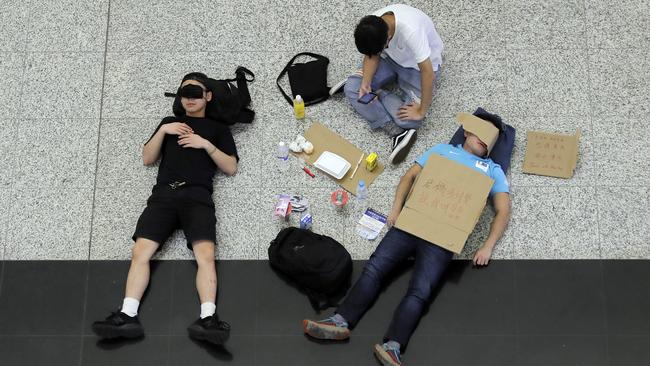Catching Zs varies by time zone
More sleep studies are pointing to a connection between more sleep and better health.

Time zones change and so do sleeping habits, according to research from Flinders University and the University of Helsinki.
Publishing their findings in the journal Sleep Medicine, the researchers identified variations in sleep duration that shift dramatically throughout adolescence and stabilise near 30 years of age around the world.
“Sleep duration ranged from 7:53 hours at age 16 to 7:29 hours at age 30,” Flinders professor Michael Gradisar says.
“There were also clear differences between females and males throughout adolescence and young adulthood, with girls having longer sleep and earlier timed sleep.”
Young adults in Asia had the shortest sleep duration (6:39 hours) — perhaps due to work and education demands — whereas those in Oceania, including Australia, had the longest (7:14 hours). Gradisar says sleep is a central element in functioning, health and wellbeing.
A study of almost 10,000 teenagers in England has found that very frequent use of social media increases exposure to bullying and reduces sleep and physical exercise.
“Our results suggest that social media itself doesn’t cause harm but that frequent use may disrupt activities that have a positive impact on mental health, such as sleeping and exercising, while increasing exposure of young people to harmful content, particularly the negative experience of cyber-bullying,” says lead researcher Russell Viner, from University College London.
For both sexes, very frequent social media use was associated with greater psychological distress, with girls also likelier to report rising rates of distress in accordance with more frequent use. It may be that girls are accessing social media more than boys, being more prone to cyber-bullying, or are likelier to have higher levels of anxiety to begin with.
Researchers have examined whether a snack, a meal or no food at all is the best option for shiftworkers wanting to avoid sleepiness. The University of South Australia’s Charlotte Gupta says a snack — such as a muesli bar or apple — proved to be the best choice for a 12.30am feed.
“Now that we know that consuming a snack on nightshift will optimise your alertness and performance without any adverse effects, we’re keen to delve more into the types of snacks shiftworkers are eating,” Gupta says.
“Lots of shiftworkers snack multiple times over a nightshift, and understanding the different macronutrient balances is important, especially as many report consuming foods high in fat, such as chips, chocolate and fast foods.”
With up to four out of 10 Australians not getting enough sleep, there is a risk that people won’t be as sharp as they could be.
“It’s very common to hear people pass off their forgetfulness and their fogginess as the result of getting old,” Sleep Health Foundation chairwoman Dorothy Bruck says. “What many fail to recognise is that sleep — or lack of it — is playing a pivotal role in memory and mood. Age is a factor, too, but improve your sleep and you’ll be surprised at the brain boost that follows.”
Guidelines recommend adults get seven to eight hours sleep a night, facilitated by a quiet room, comfortable bed, no caffeine after 2pm, a wind-down period and no devices.
“You’d be surprised how many people ignore these important guidelines and snuggle up with their iPhone in their overheated bedroom after drinking too many glasses of wine,” Bruck says.
Improving the quality of sleep may help target heart disease in remote communities.
Baker Heart and Diabetes Institute researcher Stephanie Yiallourou studied Aboriginal Australians in Alice Springs, Katherine and Palm Island and found almost a quarter reported fragmented sleep.
Sleep quantity and sleep fragmentation were also associated with higher blood pressure and cholesterol levels.
“Cardiovascular disease is the leading cause of death in indigenous Australians,” Yiallourou says.
“Traditional risk factors for CVD (such as cholesterol levels, diabetes and smoking) do not fully explain CVD risk for indigenous Australians. New factors need to be explored in order to identify indigenous Australians at risk.
“If poor sleep is a contributor to cardio-metabolic risk, then sleep provides an easily measured function or behaviour to better identify at-risk individuals so that preventive treatments can be started sooner.”



To join the conversation, please log in. Don't have an account? Register
Join the conversation, you are commenting as Logout